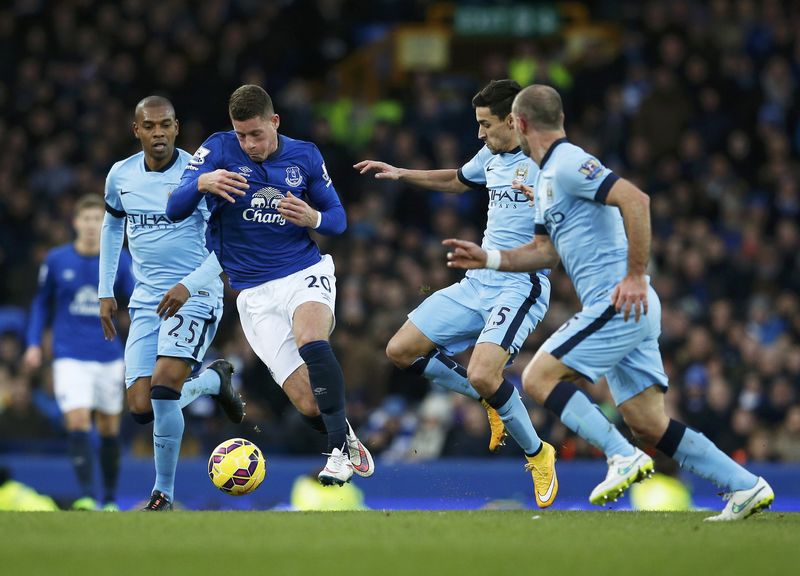By Mitch Phillips
LONDON (Reuters) - Everton fans were generally quick to excuse Ross Barkley's poor decisions when he was part of last season's successful campaign but they are not all being so accommodating to the talented young midfielder now things are getting tough.
Barkley, 21, is unquestionably the brightest talent to emerge at Goodison Park since Wayne Rooney and, like his England team mate, he has extra credit with the fans for being a local boy.
His ability to beat a player with a swerve of his body has echoes of Zinedine Zidane, few players in world football can match his ability to shoot with such power with either foot, while his driving runs into the heart of opposing defences routinely get fans off their seats in excited anticipation.
There is another side to the scouting report, however, which has been all-too prevalent this season as Everton struggle in the lower reaches of the Premier League.
Barkley has given the ball away far too often and far too often in dangerous places, trying to dribble past players outside his own box or trying an ambitious pass that leaves his defence scrambling.
His passing accuracy has fallen off and not enough of his good work is transferred into a creating a chance for himself or others, leading to some grumbling from the stands.
Everton manager Roberto Martinez, who has continually asked for patience as Barkley develops, hauled him off during Tuesday's FA Cup third-round replay and saw an immediate improvement in Everton's attacking game before they eventually lost to West Ham United on penalties.
But the Spaniard was quick to defend a player who appears to be suffering something of a second-season syndrome.
"Last season he was just a young man enjoying his football, now he's Ross Barkley and the opposition pay him extra attention -- that makes it harder for him," said Martínez as he prepared for Monday's League game against West Bromwich Albion.
"He's still getting through that process. What we should know is when he's on the pitch usually the opposition have two players on him and that means there is space elsewhere -- that's something we need to exploit.
"When you lose the ball three times and then want to hide, that's when you've got a problem. With Ross, on the fourth time he'll go past three players and give you an assist or a goal.

"You can't measure Ross on making one or two bad decisions, you can measure him on what he is doing every day on the pitch."